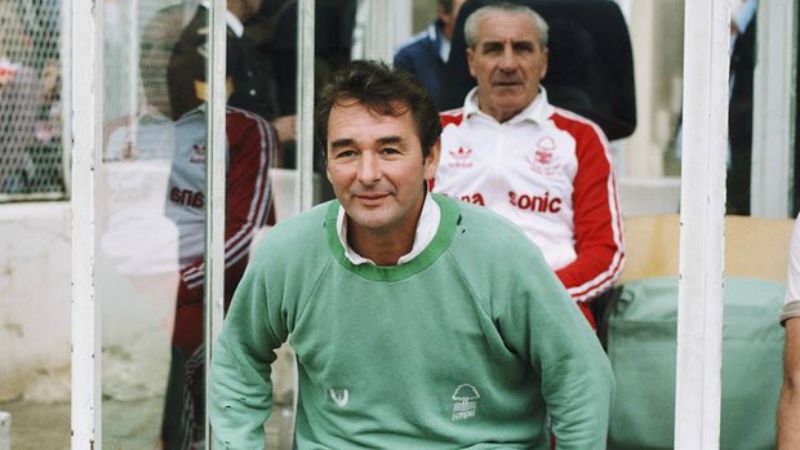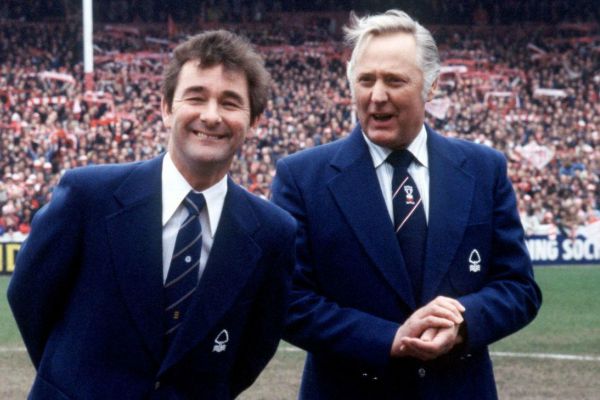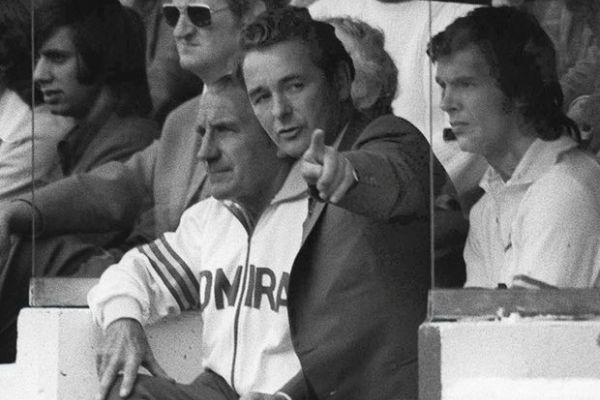
“Players lose you games, not tactics. There’s so much crap talked about tactics by people who barely know how to win at dominoes.”
Every football fan around the world is well aware of Leicester’s fairytale success in the 2015/16 season where Claudio Ranieri led Leicester City to their maiden Premier League title. Following a tumultuous 2014/15 campaign, Leicester’s Thai owners appointed the timid-looking Italian, Claudio Ranieri as the managerial successor to Nigel Pearson. The magnitude of Ranieri’s success is discernible from the fact that the betting odds offered for Leicester City winning the Premier League, were identical to the quoted odds on Elvis Presley being found alive that year: 5000-1 against. Claudio certainly managed to make the impossible possible, however, his ‘fairytale’ came to an end midway into the 2016/17 season because of his sacking which was symptomatic of the greed and ill-thought-out nature of modern football.

The inequality of soccer in today’s age and time bothers fans from around the world, not because it is unprecedented, but because it is driven more by money than it used to be. In the old days, a middling soccer team could suddenly enjoy years of dominance if it happened to hire an excellent manager who signed excellent players. That’s what happened in the 1970s to Liverpool under Bill Shankly, and to Nottingham Forest under Brian Clough in the late 1990’s. Today, a middling team can suddenly enjoy years of dominance only if it happens to be bought by a billionaire who hires an excellent manager who signs excellent players. For this reason, Ranieri’s success with Leicester City is more special and widely regarded as a footballing miracle. If there is anything parallel to what Ranieri had managed to achieve in at Leicester, it was the success of Brian Clough & Peter Taylor at the little known provincial club – Nottingham Forest.
“I’ve decided to pick my moment to retire very carefully – in about 200 years’ time.”
Brian Clough in his playing career had been a prolific scorer for Sunderland and Middlesbrough, being the fastest to reach two hundred goals ever notched in English soccer until, at the age of twenty-nine, he wrecked his right knee skidding on a frozen field on Boxing Day in 1962. Unlike Brian, Peter Taylor had a modest playing career as a goalkeeper for Middlesbrough and Coventry City where he spent most of his time in the second division. After a short stint with the Sunderland Youth Team, in 1965 Brian Clough was offered to manage Hartlepool, which he readily accepted and took Peter Taylor with him as his right-hand man. It was the prelude to a beautiful love story that lasted for over 17 years, meanwhile procuring several Domestic and European honors.
“If a chairman sacks the manager he initially appointed, he should go as well.”
Prior to his appointment at Forest, Clough had been infamous for his outspoken personality which once had him question the Italian courage in WWII after a loss to Juventus in the European Cup. A frustrated Brian Clough shouting “F*****g Italian Bastards” in the dressing room corridors is a phrase that never dispels from memory. Clough during his time at Derby had multiple run-ins with the chairman Sam Longson and the board over transfers, like signing David Nish from Leicester City in 1972 without consulting the board and more. Clough’s growing media profile combined with his brash behavior led to his resignation from Derby. However, Clough reduced his TV appearances whilst Forest manager and toned down his outspoken behavior
“Rome wasn’t built in a day. But I wasn’t on that particular job.”
After a decade of management at Derby County, Brighton & Hove Albion and his wretched stint at Leeds United, Clough arrived at Nottingham Forest on 6 January 1975 replacing the erstwhile manager Allan Brown. After finishing 8th in the old Second Division, as a lone incharge of the first full season, in July 1976 Clough was joined by his old assistant Peter Taylor. The club fortunes changed rapidly as Forest were promoted to the top division by the end of the 1976-77 season. The following season Forest achieved double, as they won the League Cup and were crowned as the champions of England, finishing seven points ahead of the dominating Liverpool side. This feat made Clough the only manager after Tom Watson and Herbert Chapman to win the league with two different clubs. Clough regarded his greatest achievement to be the record breaking unbeaten run his team set between 26 November 1977 and 9 December 1978. The team went undefeated for 42 league games – the equivalent of a whole season, only to be surpassed by Arsenal in 2004.
“Outside the family life, there is nothing better than winning the European Cups.”
Leicester narrowly lost to the Spanish giants Atletico Madrid recently, in the quarter-finals of the Champions League, a competition of Europe’s elite teams. Leicester’s performance in their first ever Champions League was nothing short of spectacular where they went unbeaten through the group stages and beat Sevilla in the pre-quarter finals to reach the quarterfinals of the Champions League (previously known as the European Cup). Similarly, Nottingham Forest, after their domestic league victory in the 1977-78 season had qualified for their first ever European Championship in 1978-79 season where they went a step ahead of Leicester and lifted the trophy by beating Malmo FF in the final match. This herculean feat of winning the Domestic League and the European Trophy in consecutive seasons was remarkable and something which is bound to go unmatched in modern-day football. Nottingham Forest were European & League Champions with a team assembled for peanuts. Moreover, Forest was crowned Champions of Europe for the second year running in 1979-1980, beating the German heavyweights Hamburger SV in the finals. Since the inception of Champions League in 1992, no European team has been able to achieve this feat.

“Telling a player to get his haircut counts as coaching as far as I’m concerned.”
Much of this success was attributed to the complementing strength of Clough and Taylor, as Clough had a forceful personality which could motivate players whilst the much more reserved Taylor’s had the innate ability to spot talent. Clough’s brilliant man management can be witnessed with an account from Taylor’s controversial book, ‘With Clough by Taylor’ where Forest had bought Kenny Burns from Birmingham City for $250,000. Burns was then regarded as “a fighting, hard-drinking gambler . . . a stone [fourteen pounds] overweight.” In 1978, English soccer writers voted Burns the league’s player of the year. Not much is known about the transfer secrets of the duo but it would’ve surely been akin to the success of Moneyball by Billy Beane’s Oakland A’s as we do know that even from 1982 to 1992, in Clough’s declining years, after Taylor had left him, Forest performed better on the field than the clubs that were spending twice as much on wages.
“Don’t send me flowers when I’m dead. If you like me, send them while I’m alive.”
Clough was universally seen as a hard but fair manager, who insisted on the clean play from his players and brooked no stupid questions from the press. Clough aired his view about long-ball football tactics when he was asked about it, “If God had wanted us to play football in the clouds, he’d have put grass up there.” Clough was a visionary and his sides kept the ball on the deck and stayed disciplined with tactics and behavior that brought more success. In one of his most iconic interviews with Don Revie, who was Leeds United’s manager then, Clough described himself perfectly: “That might be aiming for utopia. And that might mean being a little bit stupid. But that is the way I am. I am a little bit stupid regarding this type of thing. I am a bit of an idealist. I do believe in fairies. And that is my outlook.”
“Ah yes, Frank Sinatra. He met me once y’know?”
After his fairytale success with Peter Taylor at Nottingham Forest, Clough’s friendship and partnership with Taylor fell through in the summer of 1982. Taylor was annoyed that Clough was often away earning extra money from media work while he was left to do a larger share of the work with the players. The cracks in the relationship began to appear in the autumn of 1980 when Taylor published, ’With Clough, by Taylor’, an autobiography which was largely based on Taylor’s work with Clough. Taylor had not told Clough that he was writing the book and did not give him a share of the proceeds. Although they initially parted on good terms when Taylor retired in May 1982, the relationship went down the hole after a dispute over the transfer of John Robertson from Forest to Derby, whom Taylor was now managing, in May 1983. Clough attacked Taylor in a tabloid article on 3 July 1983 as being a “rattlesnake”, “a snake-in-the-grass” and said that “We pass each other on the A52 going to work on most days of the week. But if his car broke down and I saw him thumbing a lift, I wouldn’t pick him up, I’d run him over”. The two men would never speak to one another again.
“I wouldn’t say I was the best manager in the business. But I was in the top one.”
Clough struggled to replicate the success of Nottingham Forest in the 1980’s and in his final days as a manager, he was shown the cruel nature of football’s evolution. Desperate to win, struggling with alcoholism, and worn down by his time on the sideline, Clough’s once great Nottingham Forest side was relegated in his final game. For all the phenomenon that Clough was, it was disheartening to see that he was never considered for being the manager of Three Lions and probably remains the greatest English manager that England didn’t have.





